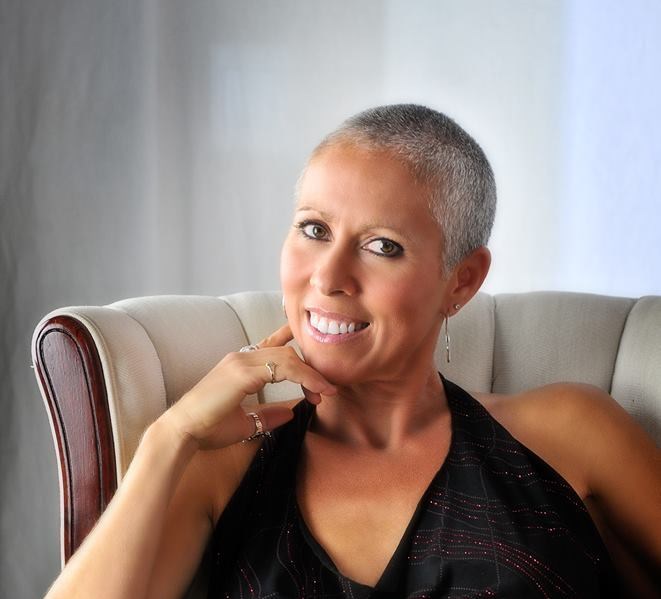As a writer, Associate Professional Clinical Counselor, Success, Culture and Communications Coordinator at Online Trading Academy, cancer survivor, and mother of three grown children, I would like to take this opportunity to share a few things I have learned over the years. Things I wished I learned instead of algebra. Things I wished my parents told me, but I wouldn’t have listened if they did. Things I know I can’t teach my kids, but I try anyway. These are the things that matter most. Things I want to share with you as a reminder of what is important in this life.
This is MY list. I do not assume that what matters most to me matters most to you. But I have a feeling that we are not all that different from each other. I know this list is not complete. This is “Part One” of many. Take what you want, and leave the rest.
Things That Matter Most
You are one of a kind, an original. Out of the 7 billion people on this planet, no one has your talents, your abilities, your body, your mind or your spirit.
Live a life worth living, a life full of possibilities, a life that matters. No regrets!
Take care of your body. For your body is a hallmark of your story.
Write a good story. And don’t be afraid to revise it from time to time.
Eat whole foods, exercise daily, go outside, and breathe deep the fresh air and sunshine.
Keep learning, reading, travelling and saying “yes” to the world. There are teachers everywhere and learning moments in every experience, good and bad.
Embrace them both.
Think outside of the box. Better yet, get rid of the box altogether.
Be creative. Keep busy. Boredom is a symptom of the unimaginative.
Do not spend more than you earn.
Do not listen to that annoying little voice in your head. It’s just an annoying little voice. Instead, go deeper. Listen to the voice that knows–the voice with power, the one true voice. It will not lead you astray. It knows what is best for you, even if you don’t. And the more you pay attention to it, the easier it gets.
When that voice (not the annoying little one) is telling you to do something, and you are scared to death to do it, do it anyway. Fear is just fear. That’s all. Do not let it keep you from your dreams.
Take risks. Make mistakes. Put yourself out on a limb. Do not be afraid to make a fool of yourself. Do not be afraid to be wrong. You will miss out on a full and meaningful life if you play it safe. Don’t miss out!
Learn to live with the anxiety that comes with not missing out. Get good at feeling uncomfortable. Discomfort is normal. It means you are living.
Do not anesthetize with food, alcohol, social media or another person. Do not fall for distractions, fantasies and quick fixes. “A life lived only in search for highs will prove in the end to be a transient superficial life.” James Hollis
Accept that we truly know nothing. Accept the fact that everything on this list could change next year. Accept that you will never know all the answers. The one thing that is for sure is that nothing is for sure. Embrace this ambiguity. It is a sign of being a grown-up.
Grow up!
Be open! Open your heart. Open your arms. Open! Unlock the mysteries within. Break down your walls. If you have to, get that sledgehammer out…
And love…love with all your heart. Love like Moses, Jesus, Mohammed and Buddha combined. Love until it hurts. And it will hurt.
And when it hurts, go ahead and cry. “…you know that a good, long session of weeping can often make you feel better, even if your circumstances have not changed one bit.” Lemony Snicket
Be the compassion you want to see in this world. Feel other’s suffering. Be empathetic. Do not judge.
Loneliness is a human condition.
Solitude is the cure.
There is no magical other. I repeat, there is no magical other. Do not expect someone to take care of you, validate you, rescue you, or complete you. Only you can complete you!
Don’t take anything personally. Toltec wisdom says, “Nothing others do is because of you.”
Nothing!
Live and let live.
Let go and forgive. Forgive others and most of all forgive yourself.
Anger and resentment are self-destructive. You are the one that suffers.
You cannot control another human being. And no one can control you.
You are the boss of you. Take personal responsibility for yourself. No one can protect you from necessary choices. The choices are yours alone. You own them. Take a stand. Be empowered.
Have a say in your own life.
You do not need permission.
Live with integrity. Be impeccable with your word. Don’t assume anything and always, always do your best.
Do not assume that if you are a good person and you live a good life that life will be good to you.
The Universe does not work that way.
Life is not fair. And that is okay.
When life is not happening the way you want, when it is moving slowly or not moving at all; be patient. Allow things to happen without forcing an outcome.
And be happy!
Happiness is inside of you. It is not out there. It is a state of being. Elusive, like trying to catch a butterfly, it bounces on the air here and there, occasionally landing on a random flower or you, then flutters away bouncing off into the air again, usually just out of your reach. Be thankful when it lands. And when it flies away, know that it will land again.
Be grateful.
It’s all about the journey.
And, never ever ever give up! As Odysseus reminds us in his hero’s voyage, “I will stay with it and endure through suffering hardship, and once the heaving sea has shaken my raft to pieces, then I will swim.”
Swim, my fellow travelers, swim.
You’ve got this!



